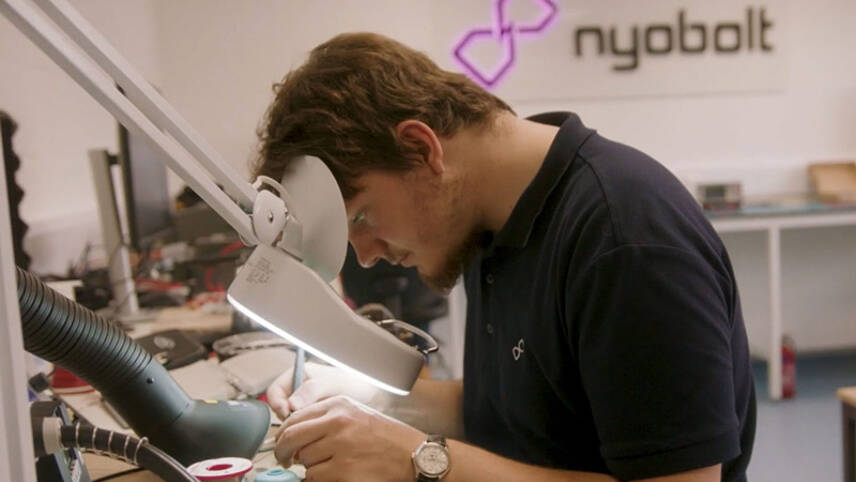Register for free and continue reading
Join our growing army of changemakers and get unlimited access to our premium content

Image: Nyobolt Ltd
The projects – which range from digital twins to improving battery recycling and next generation battery materials – will share £27.6m in funding from the Faraday Battery Challenge, delivered by Innovate UK for UK Research and Innovation.
They will aim to enable UK competitiveness across the battery value chain by building and securing the UK supply chain, improving battery performance, reducing cost of batteries and developing more efficient and globally competitive manufacturing processes.
They will also look to develop more sustainable batteries and accelerate the development and scale-up of battery technologies.
All the projects demonstrate a balance between specific technical, market and business requirements.
Moving battery innovation from technological potential towards commercial capability, these projects aim to ensure that the UK can meet its net zero commitments in the required timescale.
One of the projects, led by OXLiD Ltd, is exploring Lithium-sulphur (Li-S) batteries. These are a promising energy storage technology for applications where high-performance, lightweight batteries are needed. Like in airplanes.
Focusing on the development of Quasi-Solid-State Li-S batteries the project has the potential to significantly improve the number of times Li-S batteries can be cycled before they reach their end of life, the amount of energy Li-S batteries can store per unit volume and the temperature range over which Li-S batteries can operate.
Meanwhile, the EXtrAPower project led by Nyobolt Ltd aims to bring to market an ultra-fast charging battery technology. With an innovative design, Nyobolt’s batteries could drop the time taken to fully charge a vehicle down from hours to minutes.
While its high-power density means it has a similar or improved performance output compared to a bank of batteries double its size. These advancements could lead to an increase in the driving range of EVs and faster charging times.
With EV ownership increasing, the global EV revolution could create more than 11 million tonnes of battery waste annually by 2030, enough to fill Wembley Stadium almost 20 times every year.
This mountain of battery waste can be avoided by taking a circular economy approach, like the one being developed by Altilium Metals Ltd in Devon.
Altilium, through the CAM-EV project, is looking at how to recover the critical metals from old EV batteries and considering how to process them effectively, so they can be reused in new batteries.
Minister for industry and investment security Nusrat Ghani said: “Efficient and reliable batteries are the key to powering new, green industries that will create jobs and enable our UK-made transition to net-zero – from our world-leading renewables industry to our growing electric vehicle sector.
“This government is providing record funding for the Faraday Battery Challenge, unlocking industry investment in projects like these that build our competitive edge in these vitally important technologies.”
The Faraday Battery Challenge’s challenge director Tony Harper said: “As we move towards a net-zero future, the UK’s EV industry must continue to evolve. These winning projects have all shown how their ideas can potentially accelerate the development of technologies or business practices in the UK.
“I look forward to seeing how their innovations help to significantly advance the performance characteristics of batteries for electric vehicles.”
The news comes days after Britishvolt, which was striving to create a gigafactory for EV battery production, fell into administration. The business had asked the Government to fast-track funding, citing financial challenges relating to high energy and materials costs amid Brexit and Russia’s war in Ukraine. The Government refused, and Britishvolt was also unsuccessful in securing the necessary additional funding from new and existing investors. The gigafactory project may yet be saved by a new buyer.


Please login or Register to leave a comment.